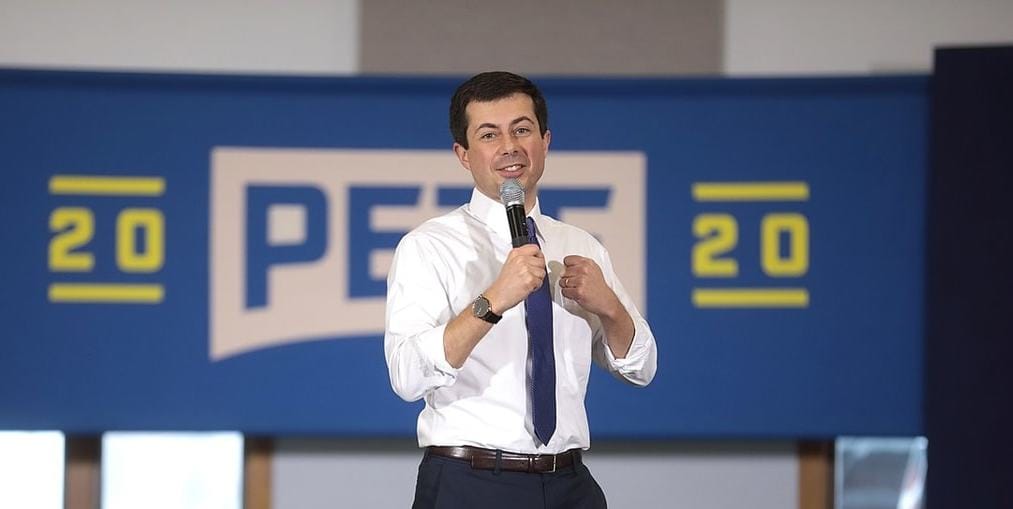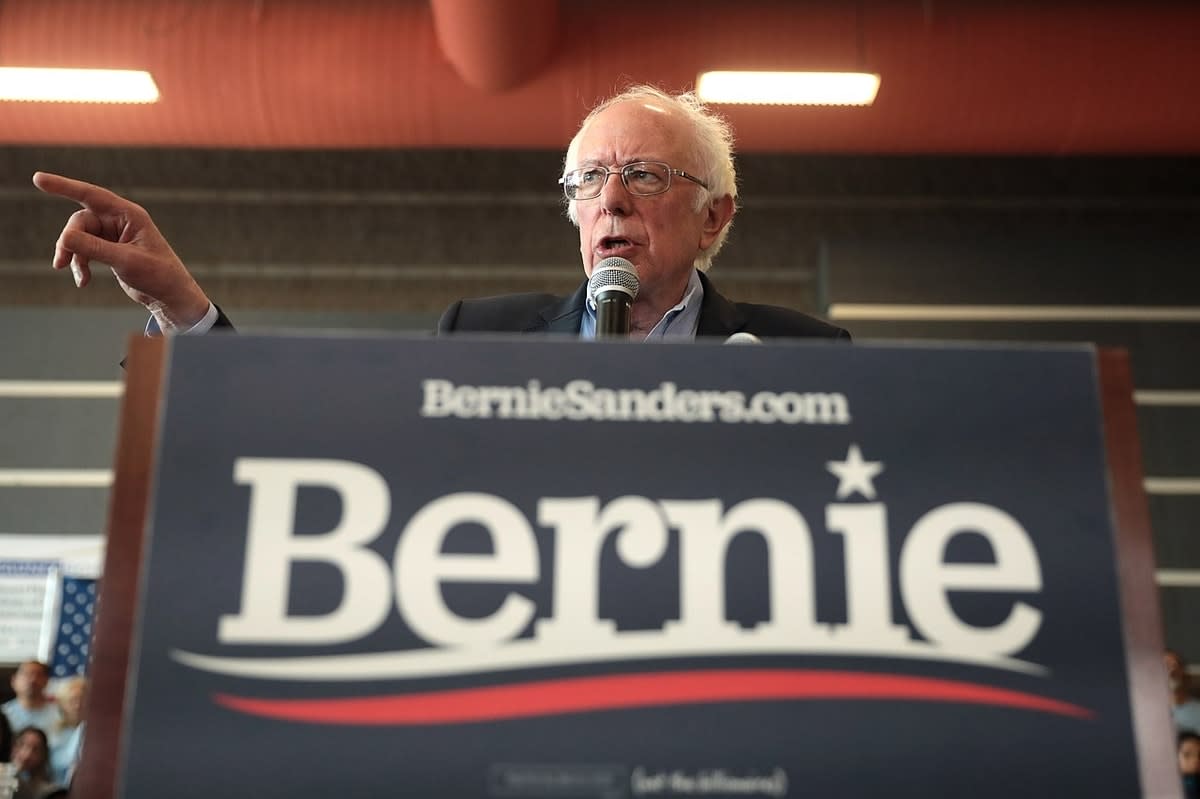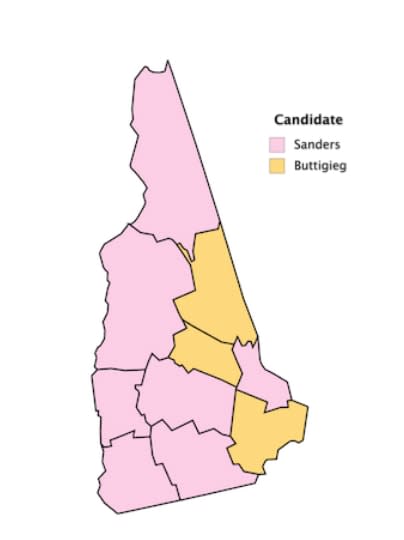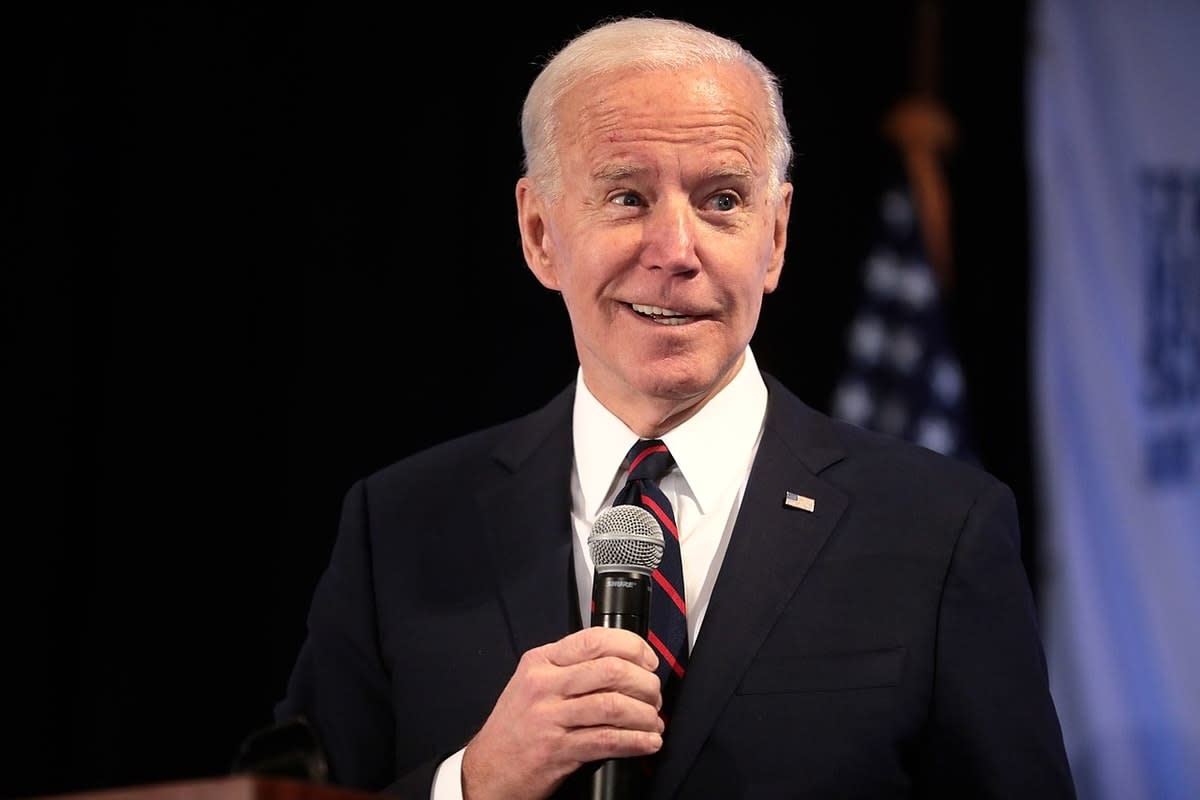
The 2020 Iowa caucus will be remembered as chaotic, contrary to the hopes of Democratic presidential contenders. An errant reporting app combined with inconsistencies among results left no apparent victor on caucus night – although the five leading candidates each appeared to claim victory. Before any official results were declared, the candidates had moved on to New Hampshire, where, a week later, ballot counting was smooth.
As is typical in the aftermath of these contests, three candidates dropped out within hours, leaving a more manageable eight vying for the nomination.
Of these eight, five candidates have won delegates to the national convention thus far. Pete Buttigieg and Bernie Sanders have emerged as the new leaders, splitting victories in Iowa and New Hampshire. Following a strong third place in New Hampshire, Amy Klobuchar rocketed into contention, while Elizabeth Warren’s campaign appears on a downward trajectory. Meanwhile, Joe Biden disappointed in both states, and is now desperate for a rebound when larger African-American populations head to the polls in Nevada and South Carolina.

These candidates polled top-five in both Iowa and New Hampshire, while the financial juggernaut of Michael Bloomberg campaigned on the sidelines. Although not present on primary ballots until Super Tuesday (3 March), Bloomberg may have been the ultimate winner in early state voting. With the delegates from Iowa and New Hampshire split five ways, Bloomberg could emerge as an 11th-hour contender, particularly given his exponential power to increase his campaign finances.
But, aside from counting controversies and billionaire financiers, what takeaways are apparent from the ‘first in the nation’ polls?
Iowa
The groundswell behind Pete Buttigieg is real – or at least for the moment. The former mayor of South Bend wielded charisma, youth and Midwestern charm to energise a devoted base of Iowan support, capturing 14 of the state’s delegates to Bernie Sanders’ 12.
A telling factor in Buttigieg’s victory was his performance in smaller counties. Of Iowa’s 99 counties, Buttigieg won 59 to Sanders’ 19 (Warren, Biden and Klobuchar split the rest). Buttigieg, however, won 43 of Iowa’s 73 smaller counties, whilst Sanders was less successful in these smaller counties, winning 10.
The table below (and maps here) indicate the winner of each Iowan county in terms of its caucus turnout. Small counties are those with fewer than 1000 caucus-goers in attendance; medium had between 1000 and 3000; and large, greater than 3000 attendees.

These figures are indicative of Buttigieg’s strong Iowa campaign. Not only was he, as a moderate, more favoured by rural Iowa, but he was also competitive in urban areas, the typical stronghold for more liberal candidates. Such results give clout to the argument that a strong moderate candidate can flip "Obama-Trump" counties to win pivotal swing states in November.
A majority of Iowa’s caucus-goers supported one of the moderate lane’s ‘Big 3’ – Buttigieg, Biden or Klobuchar. As such, should one of these candidates become the Democratic nominee, a clear path exists to claim an Iowan victory.
The path for a liberal to win states like Iowa is presently unclear. With a significant conservative base poised to support President Trump, there's less scope in these swing states for ardent liberals to consolidate Democratic support while also seducing independents and Republicans to their corner.
If Iowa’s results highlight anything – that is, beyond the strengths and inadequacies of specific campaigns – it's that some level of moderate appeal is needed to win states of the Midwest in November.
New Hampshire
The New England states have long been considered the bastion of liberal America – even if they were ardently Republican in presidential elections until quite recently. Bernie Sanders and Elizabeth Warren, liberals from neighbouring Vermont and Massachusetts, respectively, both sought strong finishes in New Hampshire.
For Sanders, this became a reality, securing a second consecutive victory at the primary. Sanders narrowly defeated Buttigieg for victory in New Hampshire, by a margin of 25.6 per cent to 24.3 per cent – far less an emphatic win than Sanders would have hoped, and far below his 60.1 per cent vote share in the 2016 primary. However, New Hampshire has delivered to Sanders what it couldn't in 2016: frontrunner status.
For Warren, this dream faded with just 9.2 per cent of the vote, placing her a disappointing fourth.
Although much remains unclear out of Iowa and New Hampshire, it's certain that Buttigieg, Sanders and Klobuchar have begun the primary strongly.
Back in November, Warren was leading New Hampshire polls, yet it appears that Sanders captured much of this support base to consolidate the liberal wing of the party. Perhaps worryingly for the Sanders campaign, the combined ballots cast for Sanders and Warren in New Hampshire was just 34.8 per cent. Although more divided, leading moderates (Buttigieg, Klobuchar and Biden) combined for 52.4 per cent. This indicates that New Hampshire Democrats are, thus far, more aligned with moderate candidates in 2020.

It may be argued that the multitude of candidates splitting the primary vote has favoured Sanders and Buttigieg, who won first and second place in all 10 of New Hampshire’s counties – Sanders winning seven to Buttigieg’s three (right).
Yet, at the same time, one could contend that Klobuchar’s near 20 per cent finish deprived Buttigieg of a Granite State victory.
Who is surviving and who is thriving?
Although much remains unclear out of Iowa and New Hampshire, it's certain that Buttigieg, Sanders and Klobuchar have begun the primary strongly.
Sanders has performed as expected and taken the frontrunner mantle. Buttigieg defied expectation to lead the moderates out of New Hampshire, while Klobuchar’s strong performance at the eighth Democratic debate rocketed the Minnesotan senator into consideration for undecided voters.
Meanwhile, the Warren and Biden campaigns are treading water.

Upcoming contests in Nevada and South Carolina will test support among minority voters, with large Hispanic and African-American populations present (as opposed to the majority white voters in Iowa and New Hampshire). Biden’s remaining cards are all-in on South Carolina, his "fiirewall" state where he hopes the high African-American population will rebound his candidacy. If Buttigieg and Klobuchar can eat into Biden’s minority support, the former vice-president’s path to the nomination may disappear. Warren will be hoping for a similar bounce back, although it's unclear from where she can gain sufficient support.
Candidates competing for air within their factions could be the decisive factor in the 2020 Democratic Primary. The timing of when flailing candidates drop out and, potentially, endorse a competitor will have an enormous impact on the race. If one the five leading contenders exits the race either before or after Nevada and South Carolina head to the polls, another campaign twist could transpire before Michael Bloomberg enters the fray on Super Tuesday.





